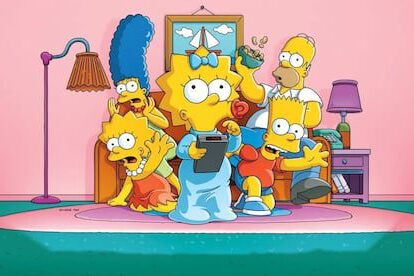BTN News: Over the years, animated TV shows like “The Simpsons” and “Futurama” have not just endured; they’ve become cultural landmarks. Despite facing challenges like cancellations and calls for retirement, these series have remained significant in the landscape of television, continuously renewing the humor and animation genres. “The Simpsons,” for instance, which debuted in 1989, is on the verge of launching its 36th season—a feat that’s almost unprecedented in television history. This longevity has required a reimagining of the characters’ timelines, with Homer Simpson now being depicted as a millennial born in the mid-1980s rather than the 1950s. Similarly, “Futurama” has survived two cancellations and continues to captivate audiences, now airing its twelfth season. But what exactly has allowed these shows to thrive for so long? The answer lies not just in nostalgia, but in the unique blend of humor, cultural commentary, and the flexibility of animation that these shows have pioneered.
“The Simpsons” is renowned for its multifaceted humor—ranging from clever wordplay and physical gags to obscure references and sharp social commentary. This complexity has allowed the series to maintain its relevance across decades. For example, the episode “Cape Feare” is a brilliant parody of the film “Cape Fear,” while simultaneously delivering one of the show’s most memorable slapstick moments: Sideshow Bob repeatedly stepping on rakes. This scene, while seemingly simple, exemplifies how “The Simpsons” balances highbrow references with lowbrow humor, a formula that has since been emulated by shows like “Family Guy.” But the humor in “The Simpsons” isn’t just about laughs; it often carries a deeper satirical edge, targeting everything from classic sitcom tropes to significant social issues, such as labor rights (“Dental Plan! Lisa needs braces.”) and gun control (“A gun is not a weapon, Marge, it’s a tool. Like a butcher knife, or a harpoon, or…uh…a crocodile!”). This blend of humor and satire has made “The Simpsons” a touchstone for cultural commentary, influencing not only how we laugh but also how we think about societal issues.
In addition to its humor, “The Simpsons” has become a rich source of references and memes that permeate our everyday conversations, particularly among those who grew up watching the show. Iconic moments and lines from the series continue to provide a shorthand for discussing contemporary events, whether it’s comparing political figures to the “Guy Incognito” or using Ralph Wiggum’s infamous “I’m in danger” to describe personal misfortunes. The show’s long history has embedded it deeply into the cultural lexicon, making it an enduring part of how we communicate and understand the world.
Another critical element that has contributed to the lasting success of “The Simpsons” is its status as an animated series aimed at adults. This format offers a unique advantage: the ability to reset to the status quo at the end of each episode, allowing characters to remain perpetually youthful and scenarios to remain open-ended. Unlike live-action sitcoms, where characters age and storylines must evolve, animation allows for a consistency that fans have come to rely on. At the same time, animation grants the creators the freedom to explore outlandish scenarios—like sending Homer to space or turning Springfield into a Venice-like city—without the constraints of budget or realism. This flexibility has not only kept the show fresh but has also paved the way for other adult animated series that followed.
Indeed, the success of “The Simpsons” opened doors for a new wave of animated shows geared toward adults. Some, like “Family Guy,” “King of the Hill,” and “Bob’s Burgers,” followed the family sitcom format, while others, such as “Archer,” “South Park,” and “Rick and Morty,” ventured into different genres. These shows have taken even greater narrative risks, thanks in part to the trail blazed by “The Simpsons.”
Among the shows that have benefited from this pioneering spirit is “Futurama,” Matt Groening’s second major production. Like its predecessor, “Futurama” incorporates cultural references and social satire but sets them in a futuristic, sci-fi context. The series frequently explores classic science fiction themes, such as time travel paradoxes. In one memorable episode, Fry unwittingly becomes his own grandfather, a twist on the famous “grandfather paradox” of time travel. This blend of genre parody and genuine sci-fi storytelling has made “Futurama” not just a satire of science fiction but also a beloved example of the genre.
Despite their enduring popularity, both “The Simpsons” and “Futurama” have faced periods of relative decline. For years, critics and fans alike have called for “The Simpsons” to end, arguing that its golden age has long passed. “Futurama,” on the other hand, has been resurrected twice, largely due to fan demand and the nostalgic affection that viewers hold for the series. However, recent seasons of “The Simpsons” have shown signs of a creative resurgence, with new writers and fresh takes on contemporary culture breathing life back into the show.
There’s reason to be optimistic about the future of these iconic series. With nothing left to prove, both “The Simpsons” and “Futurama” are free to experiment and take risks, potentially leading to a new golden age for both shows. They may never truly end, instead becoming timeless fixtures of our cultural landscape—much like the aurora borealis, unexpectedly appearing in “this part of the country, localized entirely within your kitchen.”
As these series continue to evolve, they remind us of the power of animation to not only entertain but also to reflect and critique society. Whether through biting satire, clever humor, or emotional storytelling, “The Simpsons” and “Futurama” have cemented their places in television history, proving that they are more than just cartoons—they are cultural institutions that continue to shape our understanding of the world around us.


